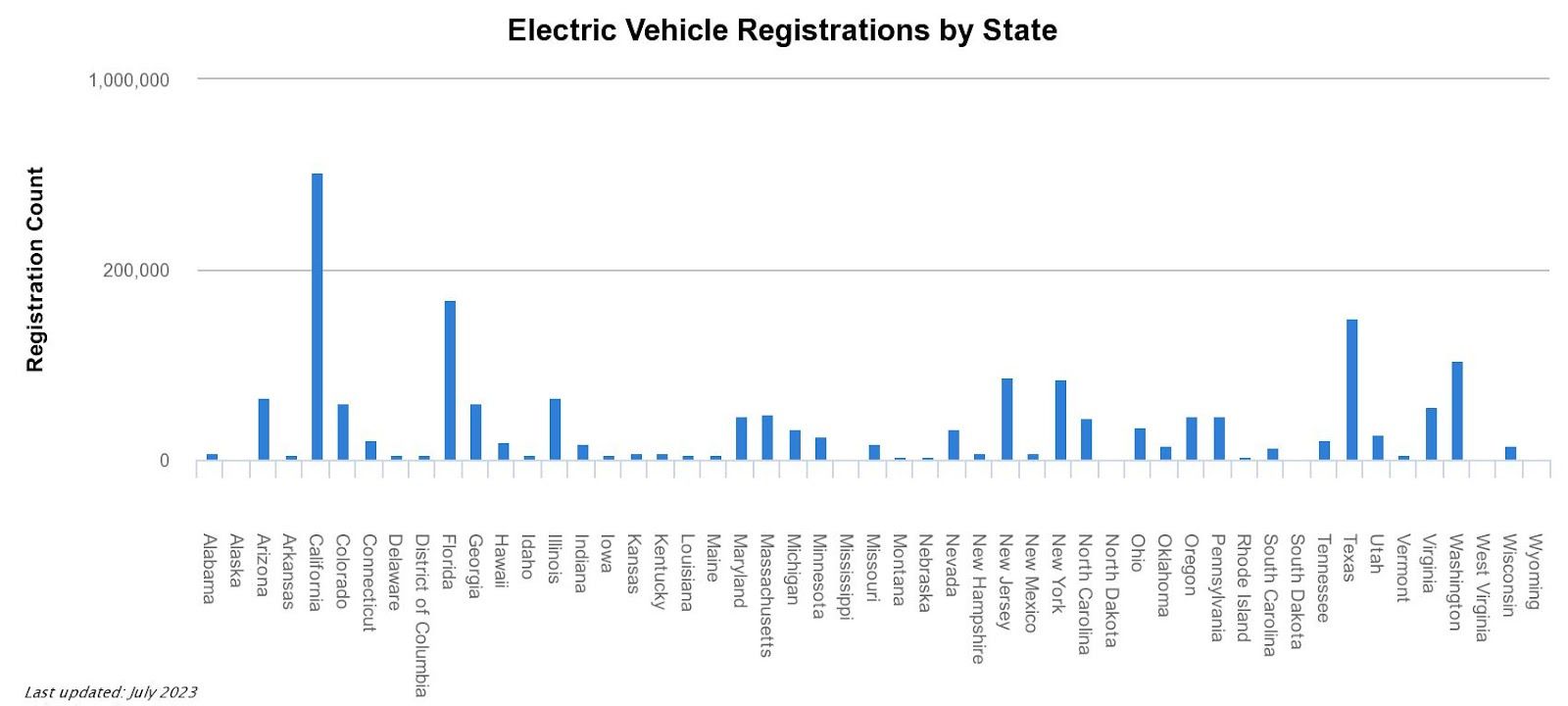With the rise in electric vehicles (EVs), the Lone Star State has seen a large shift in the world of automobiles. Texas Senate Bill 505, a piece of legislation passed and signed by Texas’s governor, Greg Abbot, and has been effective since the first of last month has ushered in a new era for Texas EV owners, but not without controversy. While proponents argue this will help fund road maintenance as gasoline tax revenue declines, critics say the fees could deter EV adoption in the state.
Increase in Electric Vehicles

According to the Department of Energy, Texas now ranks third in the nation right behind California and Florida, for registered electric cars at a number of 149,000 registered EVs in the state.
The bill itself includes a $400 registration fee for brand new EVs as well as a $200 annual renewal fee for all EVs. And when it comes to paying this fee, EV owners have the option to go digital renewing online through the Texas Department of Motor Vehicles website or via the Texas by Texas (TxT) app. However, it is important to know that motorcycle, moped, and autocycle owners are not included when it comes to paying these fees.
So where does all this money go?
The State Highway Fund, which is responsible for maintaining Texas’s large network of roads. And why implement this fee? The shrinking revenue from gasoline taxes, which traditionally has given enough funds to maintain Texas roads.
Senate Bill 505 has many supporters who applaud the bill as a move toward a level playing field, ensuring that EV drivers also have the same burden of paying for road maintenance. On the flip side, its opponents argue that the fees are well over what they should be and coil potentially cause people to think twice before purchasing an EV and deter future EV adoption.
Nonetheless, experts remain divided on the implications of the bill. Kara Kockelman, a transportation engineering professor at the University of Texas at Austin, suggests the high fees reveal Texas's favoring of fossil fuels over clean energy adoption. Tom Smith, executive director of the Texas Electric Transportation Resource Alliance, believes fees should be mileage-based rather than a flat rate. Meanwhile, Adrian Shelley of Public Citizen's Texas office thinks the state should offer more rebates to incentivize Texans to buy EVs, instead of fees that may deter purchases.
In the end all of this raises an important question: should EV owners be footing the bill when their vehicles are already making a cleaner mark on the environment?
Proponents of electric vehicles argue that these added charges could stall the drive towards electric vehicles particularly among Texas's lower-income individuals. While others point out that the cost of EVs are already higher than your average gas powered car meaning that individuals that can afford EVs will most likely be able to pay the extra fees from Senate Bill 505.
Texas isn’t alone in this electric vehicle fee legislation. Several other states have passed similar EV-related laws. To look at a few:
- Wyoming: introduced a $200 annual fee for plug- electric vehicles, similar to Texas.
- Colorado: charges $50 annual for EVs, but also factors in the standard registration fees, making it less expensive than Texas.
Senate Bill 505 is not an isolated case but rather part of a broader landscape of EV-related legislation across states. As EVs continue to gain traction and popularity, the debate over registration fees will continue, challenging us to weigh fairness, environmental concerns, and the maintenance of our roads.
Khushi Ladole
Khushi is an intern at Chen Law Journal and has a strong passion for education, public policy, and business. Beyond this, she loves to read, write, and is constantly eager to learn.
Email Me




